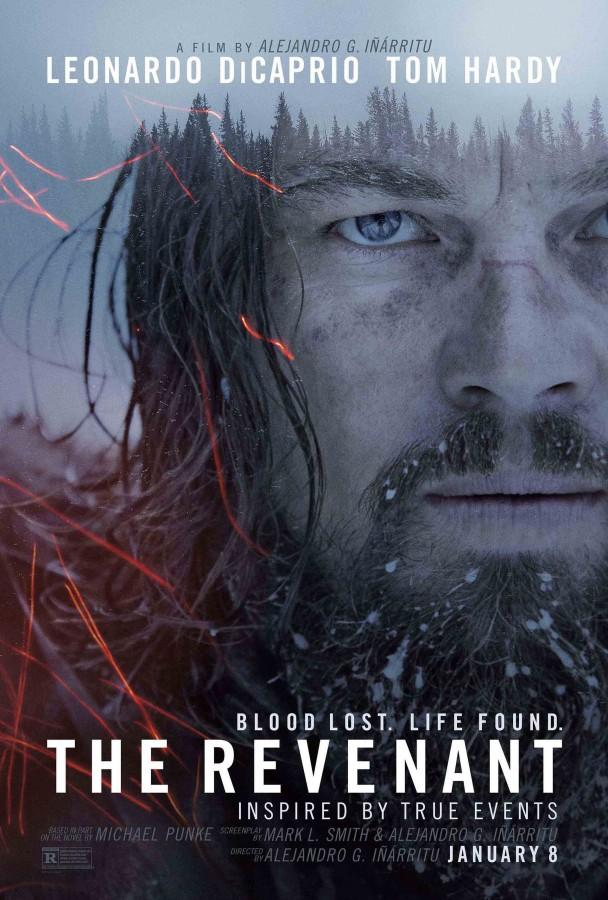In defense of DiCaprio
Why the snubbed star (finally) deserves an Oscar
January 27, 2016
He may be “king of the world” aboard the Titanic, but Leonardo DiCaprio has long been one of the biggest losers at the Academy Awards. After 28 films and 5 nominations, the actor doesn’t have a single Oscar to show for it. Now, 27 years after his rise to fame began, DiCaprio has taken on the biggest challenge of his career and has been rightfully nominated for Best Actor for his role as Hugh Glass in “The Revenant.” If this film can’t get him an Oscar, nothing will.
Even if you haven’t seen “The Revenant” (and you really ought to,) you’ve probably still heard horror stories from the set: how the weather was below freezing, how the strict shooting schedule only allowed for about 90 minutes of filming per day, how the budget reportedly skyrocketed from $60 million to $135 million, and last but not least, how DiCaprio ate an actual raw bison liver on screen. All true, and all incredibly impressive.
The finished product speaks for itself; it’s a fairly widespread opinion that this film is outstanding. However, thoughts on DiCaprio’s performance are varied. While some think he should win the Oscar because it is long overdue considering his repertoire, others argue that his past performances should have no impact on the Academy’s decision for this film, and that his portrayal of Glass is good, but not award-worthy.
While it makes sense that DiCaprio’s lack of Oscar wins should have no influence on whether or not he gets one now, if any role has ever been deserving of an Oscar, it is his in “The Revenant.” Enduring harsh exposure to the elements in conditions so bad that 10 people quit or were fired from the set for being unable to cooperate under such working conditions, DiCaprio still managed to act, and act well. He undoubtedly had the hardest job of anyone on set. He climbed mountains with heavy bear fur on his back, hobbled through a freezing river to catch a fish and conveyed a myriad of emotions merely through facial expressions, all the while convincingly played a man in agony after being mauled by a bear.
It isn’t easy to captivate an audience. Our attention spans are short, our phone screens are bright and someone always has to get up to buy more popcorn. But DiCaprio, despite having few lines of dialog (even fewer in English) and spending the majority of the film on screen alone, easily managed to hold our attention and communicate the storyline through nothing but expressions and body language. His acting, paired with the scenery caught by cinematographer Emmanuel Lubezki, is what made a true story about an 1820s fur trader so mesmerizing. Few films have ever attempted to rely so heavily on one actor’s ability to show raw human emotion, especially without many words or interactions to fall back on.
This film isn’t a spectacle of what DiCaprio is willing to do for an Oscar, as so many are making it out to be. In fact, DiCaprio was on board to make “The Revenant” even before starring in “The Wolf of Wall Street,” the last film for which he received a nomination and no win. “The Revenant” is simply another story that DiCaprio has poured himself into—becoming his character as best he can and stretching the limit of what he will do for the craft—for no reason other than his sheer talent and passion. And this time, more than any other performance he has given, he really, really, really deserves to be named Best Actor.


















